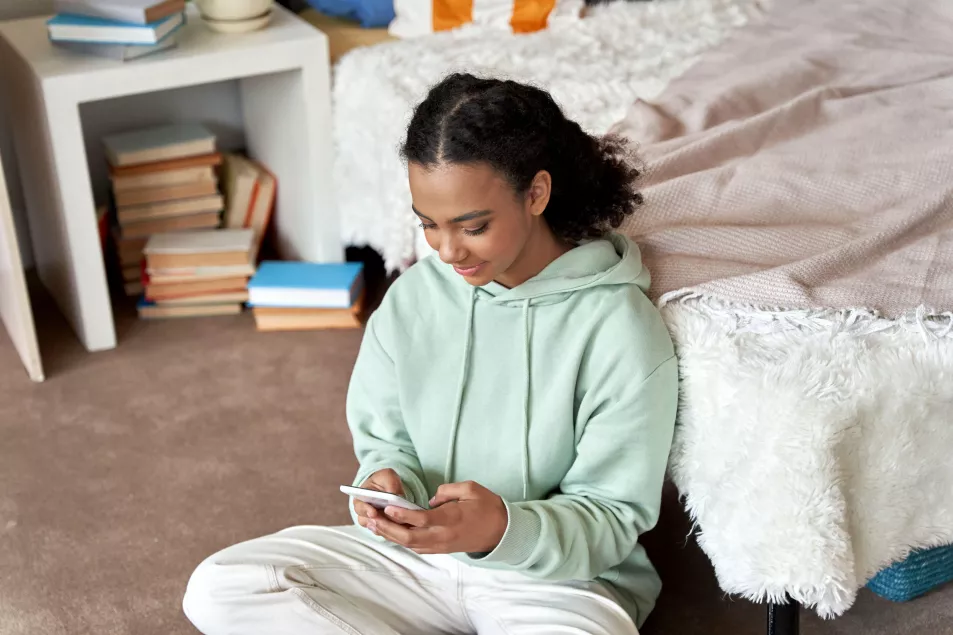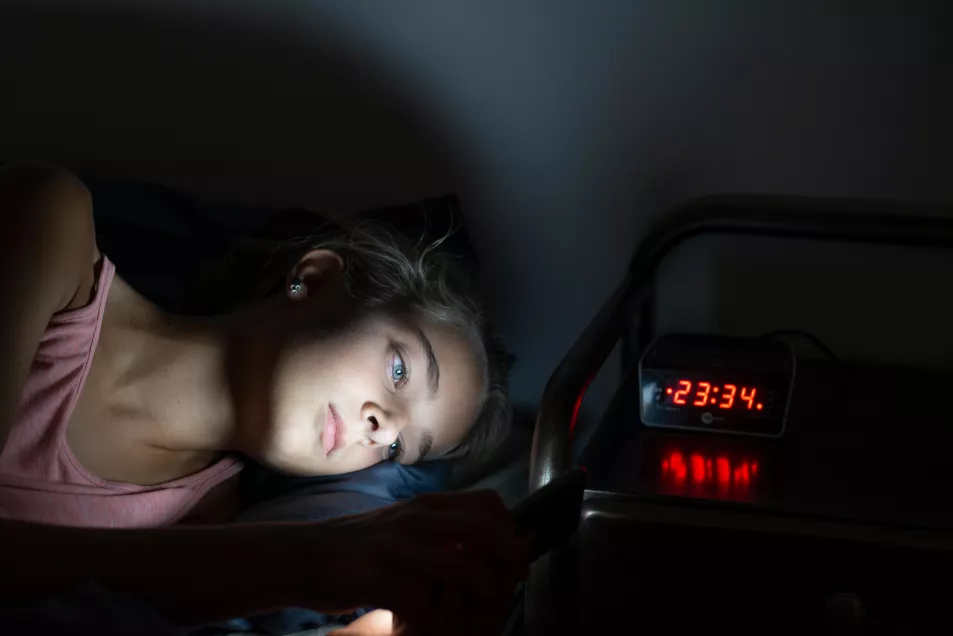Frequent social media use could be linked with harmful behaviour among children and young people, research has suggested – including drinking, gambling, smoking and drugs.
A team from the University of Glasgow, University of Strathclyde and Public Health Scotland examined the impact of social media on young people aged 10-19, looking at data from 73 studies carried out between 1997 and 2022, comprising 1.4 million teenagers in total.
Exposure to alcohol advertising was associated with the strongest evidence of harm, the research found. Daily social media use was linked with the likelihood of drinking alcohol (48 per cent), drug use (28 per cent) and smoking (85 per cent), compared with youngsters who used social media less frequently.
So, how can parents help model healthy boundaries with social media for their pre-teens and teens? A parenting experts shares some suggestions…
Encourage open communication

Matt Buttery, CEO of global parenting programme provider Triple P UK and Ireland and associate professor at the University of Warwick, believes establishing good, open communication patterns within families is important.
“Children are more likely to discuss their worries regarding what they have been viewing online if you establish open communication,” said Buttery.
“Parents can achieve this by opening conversations about what’s new online and anything that’s bothering them, and offering support and guidance along the way to help keep children as safe as possible.”
Create positive incentives for regulating screen time

Phones and social media are designed to be addictive – so we all need to take care to maintain healthy habits and boundaries with screen time.
“When supporting children and teens to put down their devices independently, sometimes we need to give them some encouragement to understand why doing so is important,” said Buttery.
“You can negotiate access to devices as rewards for doing chores or homework, but be careful to use this approach sparingly. Instead, focus on positively supporting and guiding your child’s development, rather than using screen time as a bargaining chip.”
Set family limits and create screen-free zones
This can be a team effort, if you think about how the entire family can get involved.
“Decide when you’re all going to switch off,” said Buttery. “Situations such as shared meals and short car rides might offer chances for family time. It can also be great for your child to see you showing self-control and discipline when using your devices.”
Promote good sleep hygiene by limiting screen time before bed
It’s sometimes easier to address issues as they come up, especially when it comes to sleep hygiene.
Buttery added: “Young people often see the most harmful and inappropriate content in the evenings, when they take their phones to bed and have free rein over what they are browsing.
“Reduce late night scrolling by having a rule that devices are not taken into bedrooms in the evening, and especially at bedtime,” he suggested.

Evenings could also be a good chance for some quality family time and shared activities or hobbies. Remember – parents are modelling behaviour with phones too, so if you are scrolling constantly on the sofa, that’s what children will see.
“Try and encourage your child to come off their device by setting up something interesting to do together – whether that’s planning a trip out, playing a game or watching a favourite show or film together,” said Buttery.
“This can become difficult if your child needs to use a device for their homework. Rather than leaving your child to themselves, pop your head in from time to time to ensure they haven’t switched from studying to social media.”







